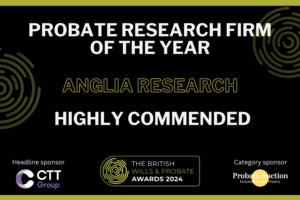Administration
The administration of an estate involves identifying and valuing the deceased’s assets, paying any debts and necessary taxes, and finally distributing what’s left to the beneficiaries.
Administrator/Administratrix
An administrator is someone who oversees the administration of an intestate estate. Generally, when someone dies, the executors named in their will become their personal representatives and oversee the administration of their estate. However, when there is no will, there can be no executor, so in cases of intestacy, the deceased’s personal representative is known as the administrator.
The probate court will usually grant letters of administration to the deceased’s next-of-kin, who then becomes the administrator of the estate. Nowadays, “administrator” is generally applied to both sexes, and the feminine “administratrix” is becoming obsolete.
Assets
Assets are possessions that have value, such as a house, land, money and shares.
Attorney
An attorney is someone whom an individual appoints to act on their behalf. When a lasting power of attorney is set up, the individual appoints the attorney to make decisions on their behalf if there should come a time when they themselves lack the mental capacity to manage their own affairs.
To find out more about attorneys and statutory wills, please see our statutory will research page.
Beneficiary
A beneficiary is someone who inherits from the estate of a deceased person either under the rules of intestacy or because they have been named in a will.
Bequest
A bequest is a gift of personal property such as shares, money or jewellery left in a will (not to be confused with “devise”, which refers to property in the form of land or buildings).
BMD
BMD is a common abbreviation for births, marriages and deaths. In England and Wales these vital events have been officially recorded since 1837. When genealogists mention BMD they are usually referring to the indexes to these records, which are now widely available online.
For the history of BMD registration, see The history behind your birth certificate.
Bona vacantia
Bona vacantia is Latin for “ownerless goods” and is the name given to unclaimed estates in England and Wales. These are the estates of people who die with no known relatives and without making a will. By law, they pass to the Crown.
Outside the Duchies of Lancashire and Cornwall, the Crown’s rights to bona vacantia are included among the hereditary revenues surrendered in return for the Civil List (now the Sovereign Grant), and as such are dealt with by the Treasury Solicitor who acts for the Crown to collect and administer unclaimed estates.
Bona Vacantia Division (or BVD)
The Bona Vacantia Division is a sub-organisation of the Government Legal Department. In England and Wales, the BVD is responsible for dealing with unclaimed estates, except within the Duchy of Lancaster and the Duchy of Cornwall.
In Scotland unclaimed estates are dealt with by The Queen’s and Lord Treasurer’s Remembrancer, and in Northern Ireland they are handled by the Crown Solicitor’s Office for Northern Ireland.
The BVD will accept valid claims on an estate within 12 years from the date that administration was completed, although it has been known to accept claims up to 30 years from the date of death.
Bona vacantia list
Codicil
A codicil is an addition or supplement that explains, alters, cancels or adds to the provisions of a previously drafted will.
Compulsory land registration
The Land Registry was established in 1862 to register the ownership of land and property in England and Wales. To begin with registration was voluntary, but compulsory registration spread. Since 1990, the sale of a property anywhere in England and Wales triggers its compulsory registration. Further triggers for compulsory registration (such as taking out a mortgage) were introduced in 1998.
Court of Protection
In England and Wales, the Court of Protection has jurisdiction over the financial affairs and welfare of people who lack mental capacity to make decisions for themselves. Its powers are defined by the Mental Capacity Act 2005.
Deed poll
A deed poll is a legal document that proves a change of name. In law, someone’s name is established simply by the fact that they commonly use it. However, any adult can formalise a change of name by writing a deed poll and this allows them to change their name on official documents such as their passport or driver’s licence.
While a deed poll can be registered or ‘enrolled’ on the official public record, there is no legal requirement to do this.
Deputy
A deputy is an individual appointed by the Court of Protection to manage the affairs of someone who lacks the mental capacity to make decisions for themselves. The need for a deputyship arises when an attorney has not previously been appointed, or when the attorney is unable or unwilling to fulfil their role.
To find out more about deputies and statutory wills, please see our statutory will research page.
Devise
A devise is a gift of ‘real’ property (or real estate) left in a will. Unlike a bequest, which refers to personal property such as shares, money or jewellery, a devise covers property in the form of land or buildings.
Distribution
Distribution is the final stage of the probate process, when all eligible beneficiaries receive their inheritance. It takes place after the assets of the estate have been valued when all debts and taxes have been paid, and the entitlement of each potential beneficiary has been calculated.
Enduring power of attorney
In England and Wales, an enduring power of attorney (EPA) is a legal document that allows someone (the donor) to appoint someone else (the attorney) to manage their property, money and financial affairs.
EPAs were created by the Enduring Powers of Attorney Act 1985, but were replaced by the property and financial affairs lasting power of attorney on 1 October 2007. Only EPAs made and signed before that date can still be registered with the Court of Protection.
Entitlement
When someone dies without leaving a will, the rules of intestacy are used to determine who is entitled to a share of the estate. These rules set out a clear order of entitlement.
Escheat
The word “escheat” dates back to the 14th century, when everyone was essentially a tenant of the king. It was used to denote the legal process whereby land returned to the king when a “tenant” died without an heir. Nowadays it means the reversion of property to the Crown, as happens when someone with no known relatives dies without making a will.
Estate
A deceased person’s estate is the sum of all the assets they owned, less the debts and taxes they owed.
Estate accounts
Estate accounts provide a record of the administration process, laying out the value of the deceased’s assets when they died, what debts, expenses and taxes have been paid, and how the balance of the estate has been distributed among the beneficiaries.
Estate distribution schedule
An estate distribution schedule is a document drawn up prior to the distribution of the estate of someone who has died without leaving a will. It lays out the exact share of the estate to which each beneficiary is entitled, according to the rules of intestacy.
For more information, please see our estate distribution page.
Execute a will
A will is executed when the testator and witnesses sign and date it.
Despite the similarity between the words ‘execute’ and ‘executor’ they refer to very different functions. An executor ensures that the instructions in the will are followed after the testator’s death.
Executor/Executrix
An executor is someone named in a will to carry out the directions of the will. The executor stands as the deceased’s personal representative and oversees the administration of their estate.
When there is no will, there can be no executor, so in cases of intestacy the deceased’s personal representative is known as the administrator.
Nowadays, “executor” is generally applied to both sexes, and the feminine “executrix” is becoming obsolete.
Family tree verification
Family tree verification is a service provided by probate genealogists, who can check the family tree provided by friends or relatives of the deceased to ensure that it is correct and that no eligible beneficiaries have been missed. For more information please see our family tree verification page.
Freedom of Information (FOI) request
A Freedom of Information request is a request to see information recorded and held by a public authority.
As a result of the Freedom of Information Act 2000 anyone can make a written request for information held by a public body such as a local council, state school, government department or health trust. The public body that receives the request is obliged to provide the requested information unless the costs of making it available are too high or the information is exempt for one of the reasons set out in the Act.
You can read the government’s guide to making a FOI request here, while responses to many previous requests are available here.
Genealogy
Genealogy is the study of family history, using historical records and interviews to establish who someone’s ancestors were and trace other family relationships between people. Someone who pursues genealogy as a career is known as a professional genealogist.
Government Legal Department
Previously known as the Treasury Solicitor’s Department, the Government Legal Department provides advice and legal services to central government departments and other publicly funded bodies in England and Wales.
The department is headed by the Treasury Solicitor (see below) who acts for the Crown to collect and administer the estates of people who die with no known relatives and without making a will.
Grant
The term “grant” is used to describe whatever type of grant of representation is issued: a grant of probate (when there is a will) or a grant of letters of administration (when someone has died without making a will). In both cases, the grant is a piece of paper that gives a personal representative the authority to administer the deceased’s estate.
Grant of letters of administration
In England and Wales, a grant of letters of administration is a document that confirms who has the legal authority necessary to deal with an estate when someone has died without leaving a will.
Grant of probate
In England and Wales, a grant of probate is a document that confirms an executor’s legal authority to deal with an estate when the deceased person has left a will.
Grant of representation
In England and Wales, a grant of representation is a document that confirms who has the legal authority to deal with a deceased person’s estate. It’s an umbrella term that covers both a grant of letters of administration (when there is no will) and a grant of probate (when there is a valid will).
Guardian
A guardian is someone entrusted by law to look after the interests of a child under the age of 18.
Half-blood
Usually referred to as “half-brothers” or “half-sisters”, half-blood siblings share only one parent. By extension, your father’s half blood sister would be your half-blood aunt. In contrast, siblings of the whole or full blood share the same mother and father.
Heir
Historically, the term “heir” was used to mean someone who inherits all the property of a deceased person. Nowadays it is used more loosely to denote anyone who inherits a share of an estate. In cases of intestacy, where a beneficiary’s claim lies only in their kinship with the deceased, they are properly known as an “heir at law”.
Heir at law
An heir at law is someone who inherits a share of an intestate estate. This person must be in some way related to the deceased.
Heir hunter
This term, popularised by the BBC’s Heir Hunters programme, has become synonymous in some minds with probate genealogy. However, just as Anglia Research has consistently declined to take part in the television series, we also decline to refer to ourselves as “heir hunters”, a phrase that is increasingly associated with newspaper headlines about overcharging and malpractice.
Inheritance tax or IHT
Inheritance tax is a tax on the value of the deceased’s estate at the time of their death and on financially significant gifts made by an individual in the last seven years of their life. The inheritance tax threshold (or nil-rate band) is the amount up to which an estate will have no tax to pay. This changes from year to year. Where the value of an estate exceeds the nil-rate band, only the amount above the nil-rate band is taxed.
It is important to remember that inheritance tax is paid from the estate before it is distributed to the beneficiaries. For information about the current inheritance tax threshold and rate, please see the HMRC website.
Intestacy
The word “intestacy” is used to describe a situation where someone dies without having made a valid will, and the value of their estate is greater than their debts and funeral expenses.
Intestate
Used as a noun, “the intestate” refers to someone who has died without leaving a valid will. If someone dies “intestate” it means they have not left a valid will.
Issue
The term “issue” refers to someone’s children (genetic or adopted) as well as more distant descendants such as grandchildren and great-grandchildren.
Lasting power of attorney
In England and Wales, a lasting power of attorney (LPA) is a legal document that allows someone (the donor) to appoint one or more people (the attorneys) to make decisions on their behalf if there should come a time when they themselves lack the mental capacity to take care of their own affairs.
Limited power of attorney
When someone grants a limited power of attorney to another person, they appoint them to act on their behalf only on a specific matter, perhaps to sell a property, operate a bank account or administer an estate. This differs from a lasting power of attorney, where someone grants another person legal authority to make decisions on their behalf over a wide range of issues in the future.
Life interest
A life interest in a property or investments means that a beneficiary who receives it has the right, during their lifetime, to use or gain income from the gift.
Missing beneficiary indemnity insurance
Missing beneficiary indemnity insurance is insurance taken out before the distribution of an estate where someone has died without leaving a will. It protects the personal representative and any beneficiaries should a possible future claim be brought against them (for example, by an entitled relative who has been overlooked in the distribution).
You can find more information on our indemnity insurance page.
Missing will insurance
Missing will insurance is insurance taken out when someone seems to have died without leaving a will. It protects the personal representative and any beneficiaries should a valid will turn up after the estate has been distributed.
For more information, please see our indemnity insurance page.
Partial intestacy
A partial intestacy occurs when someone dies leaving a will that disposes of some but not all of their estate. Partial intestacies usually arise because a beneficiary has predeceased the testator, and the sum in question becomes subject to the rules of intestacy.
Personal representative
In England, Wales and Northern Ireland, a personal representative is the person who administers the deceased person’s estate. If they are named in the will they are called the executor. If there is no will, they are known as the administrator. In Scotland, a personal representative is known as either the executor-dative or the executor-nominative.
Per stirpes
Per stirpes is Latin for “by branch” and refers to a method of distributing assets when someone dies. In cases of intestacy, in England and Wales estates are distributed per stirpes. For example, if a widower with three children dies intestate, his children will each inherit one third of his estate. However, if one of them has predeceased their father, their third share passes to their children, who divide it equally between themselves. To understand how this method of distributing assets works in more complicated cases, please see our estate distribution guidance page.
Probate
Strictly speaking the term “probate” applies only to cases where the deceased has left a will and describes the legal process whereby a grant of probate is obtained. However, it is commonly used to describe the process of obtaining a grant of representation, and thus also covers cases where there is no will.
Probate genealogy
Probate genealogy is a specialist area of genealogy in which historical records are used to trace an intestate person’s family tree, identify all the entitled living branches, locate present-day beneficiaries and prove their legal right to inherit from the estate.
Probate research
Probate research and probate genealogy are interchangeable terms.
Rules of intestacy
The rules of intestacy govern the distribution of a deceased person’s estate among surviving family members, when the deceased has not left a valid will.
For more information, please see our rules of intestacy page.
Statutory will
A statutory will is a will made on behalf of someone who is over 18 and lacks the mental capacity to make a will themselves. This type of will is drawn up and approved following an application to the Court of Protection.
For more information, please see our statutory will research page.
Statutory will application
A statutory will application is an application made to the Court of Protection (by a court appointed deputy or an attorney) to draw up a statutory will on behalf of someone who lacks the mental capacity to make a will themselves. Applicants must supply details about the next-of-kin of the person to whom the application applies, and the contact details of any existing or prospective beneficiaries who will be affected by the application.
For more information, please see our statutory will research page.
Testamentary capacity
Testamentary capacity is a legal term referring to a person’s mental ability to make a will. Under the Mental Capacity Act 2005 a person is assumed to have capacity unless proved otherwise. The test for testamentary capacity was established by the courts in the case of Banks v Goodfellow (1870).
Testator/Testatrix
A testator is someone who makes a will disposing of their property – particularly someone who dies leaving a valid will. Nowadays, “testator” is generally applied to both sexes, and the feminine “testatrix” is becoming obsolete.
Treasury Solicitor (TSol)
The Treasury Solicitor acts as the Crown’s agent to collect, manage and dispose of bona vacantia (ownerless property) in England and Wales, including the estates of people who die intestate and with no entitled relatives. However, in the counties of Lancashire and Cornwall, bona vacantia is dealt with by the respective Duchies.
Unclaimed estates list
The unclaimed estates list, or bona vacantia list, is a list of unclaimed intestate estates that is updated every working day and published online by the Government Legal Department. An estate is added to the list when someone dies without leaving a will and seems to have no next of kin.
You can find the unclaimed estates list on the Government’s website, www.gov.uk.
Unknown creditor indemnity insurance
Unknown creditor indemnity insurance is insurance taken out prior to the distribution of an estate. It protects the personal representative and any beneficiaries should an overlooked creditor come forward after the estate has been distributed.
This type of insurance is properly known as “No Section 27 Trustee Act (unknown creditor) indemnity insurance”.
For more information, please see our indemnity insurance page.
Will
A will is a legal document in which someone sets out what should happen to their assets after their death.
Find out more about our services
Why have we contacted you?
If we have contacted you it is because we believe you are entitled to a share of an inheritance. You may wish to take legal advice, but do get back to us as soon as you can.
Why choose Anglia Research?
Our accredited genealogists offer accessible, transparent, and confidential services that are regulated by the Professional Paralegal Register.
Beneficiaries FAQ
To find out more about us, click on the questions below. Please don’t hesitate to contact us directly if there is anything else you would like to know.
Find your case manager
Find out more about our case managers, researchers, or associates who have contacted you directly, or are dealing with your case, here.
Code of conduct
At Anglia Research we have a commitment to integrity, quality and service. Our reputation is very important to us. Read more about our Code of Conduct here.
2025 Anglia Research Services All Rights Reserved.
Anglia Research and Anglia Research Services are trading names of Anglia Research Services Limited, a company registered in England and Wales: no. 05405509
Marketing by Unity Online









